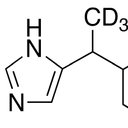Anlotinib, a novel small molecular tyrosine kinase inhibitor, suppresses growth and metastasis via dual blockade of VEGFR2 and MET in osteosarcoma.
Nyckelord
Abstrakt
Osteosarcoma is the most common primary malignant bone tumor in children and adolescents, with highly aggressive behavior and early systemic metastasis. The survival rates for osteosarcoma remain unchanged over the past two decades. Studies aiming to find new or alternative therapies for patients with refractory osteosarcoma are urgently needed. Anlotinib, a novel multi-targeted tyrosine kinase inhibitor (TKI), has exhibited encouraging clinical activity in NSLCC and soft tissue sarcoma, whereas its effect on osteosarcoma has not been studied. In our study, we investigated the anti-tumor activity and underlying mechanism of anlotinib in osteosarcoma. Various in vitro and in vivo models of human osteosarcoma were used to determine the anti-proliferative, anti-angiogenesis and anti-metastasis efficacy of anlotinib. Our results showed that anlotinib suppressed tumor growth and increased the chemo-sensitivity of osteosarcoma. In addition, anlotinib inhibited migration and invasion in osteosarcoma cells. Furthermore, in order to explore the anti-tumor mechanism of anlotinib, phospho-RTK antibody arrays were performed. These analyses confirmed that anlotinib suppressed the phosphorylation of MET, VEGFR2 and the downstream signaling pathway activation. Moreover, we demonstrated that anlotinib blocked hepatocyte growth factor (HGF)-induced cell migration, invasion and VEGF-induced angiogenesis. Notably, a 143B-Luc orthotopic osteosarcoma model further showed that anlotinib significantly inhibited growth and lung metastasis of implanted tumor cells. Our preclinical work indicates that anlotinib acts as a novel inhibitor of VEGFR2 and MET that blocks tumorigenesis in osteosarcoma, which could be translated into future clinical trials.




